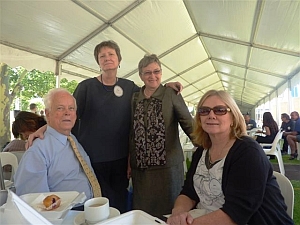By Neena Bhandari
Sydney, 19.07.2011 (IPS): Laurie Humphreys was on the first ship after the Second World War that brought 150 British boys and girls, aged five to14 years, to Australia in 1947. At 13, he was promised oranges and sunshine and an adventurous holiday, but the reality was the contrary.
Tens of thousands of children suffered systemic physical, emotional and sexual abuse and neglect, exploitative work practices and deprivation of food, clothing and proper education while in government institutions, church organisations, orphanages, homes or foster care.

